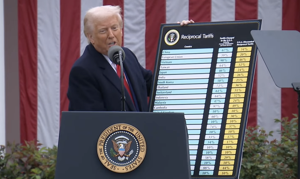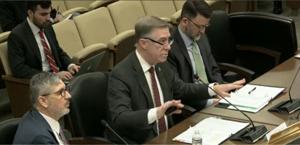(The Center Square) – The city of Los Angeles has issued just four rebuilding permits in the Pacific Palisades 75 days after a fire devastated most of the coastal community, highlighting the city’s struggle with providing basic government services.
After the city dedicated significant resources to tearing down a 20-year-old family treehouse earlier this month over permitting disagreements, many individuals highlighted their struggles with obtaining permits for building even simple structures.
According to Los Angeles City Councilwoman Traci Park, who represents the Pacific Palisades, only four permits have been issued for rebuilding thus far after a fire destroyed 6,000 structures and leveled much of the community.
“When I hear in a committee meeting like we had today that only four permits have been issued and we’re at day 75 post-fire, that is concerning to me,” said Park to ABC 7. “The loss of business and tax revenue is going to impact us. We are looking at hundreds of billions of dollars in economic losses overall here, and I don’t think there is any real easy way to sugarcoat this. It’s a mess.”
Just weeks ago, Los Angeles officials demolished a beloved family treehouse that had been in a nearby community for over two decades, following lengthy court battles and attempts by the owner to get the treehouse property permitted that have cost the owner over $50,000, and the city likely significantly more.
Builder Alexis Rivas said that 49 days after applying for a fire rebuild permit for a simple accessory dwelling unit, Los Angeles lost his permit, requiring refiling and delaying the project, and sat on his application as it waited for Mayor Karen Bass to issue an executive order in compliance with a state executive order from California Gov. Gavin Newsom.
“This is a pre-approved fire rebuild ADU. Flat lot. There should be no complications,” said Rivas on X. “We built the exact same one last year in 45 days – start to finish. The city has now spent more time shuffling paper than it takes us to build.”
Bass, meanwhile, has said that homeowners who fail to clean up lots will have the burned-up remains of their homes declared a “nuisance,” prompting pushback from local leaders.
“ ‘Nuisance.’ That’s what Mayor Bass is calling destroyed homes — an insult to everyone who lost their home in the fires,” said developer Rick Caruso, whose Palisades shopping center was one of the few local buildings to survive after hiring private firefighters, on X. “The rubble was homes!”
Amid a $1 billion deficit, the mayor is seeking a $1.9 billion bailout from the state, on top of the $2.5 billion in fire aid already approved. Newsom, in turn, is seeking a $40 billion bailout from Congress and the Trump administration.


















































